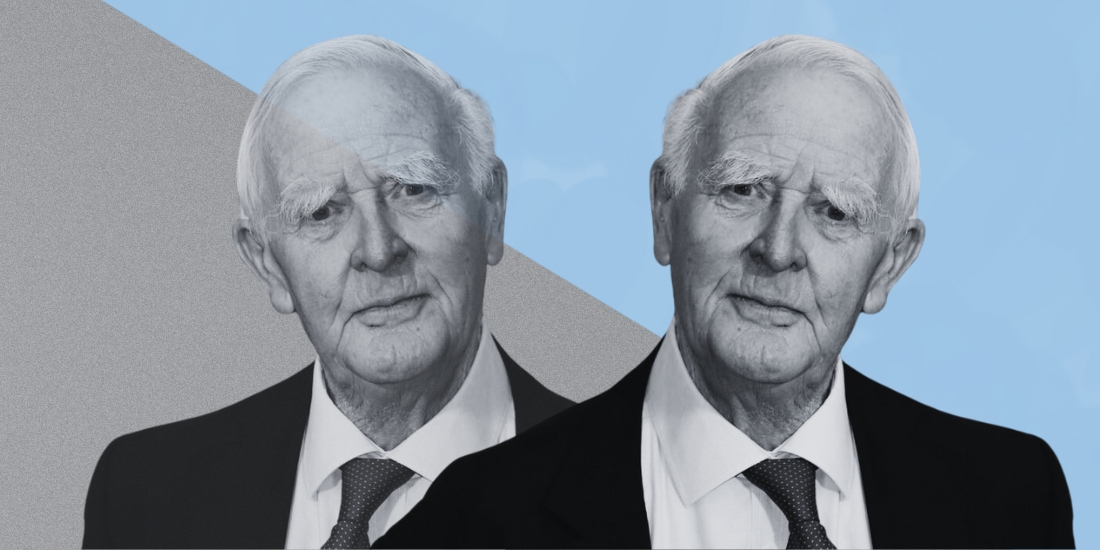Why John le Carré’s Work Stays Extra Important Than Ever ‹ Literary Hub
Typically a terrific author sneaks up on you. You’ve recognized his identify for years, seen cabinets of his paperbacks in each bookstore, watched variations of his novels for the display screen. However you’ve at all times discovered causes to go away him on the periphery: his historic second has handed; he’s too mannered, too British, too middlebrow; and anyway you’re looking for out literature, not style fiction. Then your protect cracks.
Article continues after commercial
Maybe you’re on trip with your loved ones within the Sierra Nevada. It’s unseasonably sizzling in early summer time. You’ve hiked all day over rugged terrain, cooked dinner, drunk a 3rd pilsner. Now darkness has fallen, your spouse and kids have gone to mattress, and within the boring gentle of the cabin’s most important room the books you’ve introduced—To the Lighthouse, say, and a set of Chekov’s tales—all of the sudden appear daunting.
On a aspect desk, between a boxed jigsaw puzzle and a water-damaged information to the area’s trails, stand just a few volumes that others have left. Not one of the titles shock you. There are books by Lee Baby, Barbara Kingsolver, and Stephen King, together with what’s in all probability John le Carré’s most well-known novel, the one you’d identify in the event you have been answering a trivia query: The Spy Who Got here in from the Chilly. You decide it up, sit within the armchair, and start to learn.
*
The novel, le Carré’s third, is a brief e-book comprised of brief chapters. Its motion begins and ends in frozen darkness on the Berlin Wall. The barrier not solely separates two empires and ideologies, however cleaves the psyches of the characters themselves. They move by checkpoints on solid papers, whereas guards watch from the towers with weapons drawn. Anybody who doesn’t put on a uniform speaks in a whisper. The dialogue is terse, the tempo relentless. Double-crossers betray double-crossers, conspiracies ripen till vaster conspiracies subsume them, and the bonds of affection and friendship drag the central and most admirable characters into catastrophe.
Le Carré evokes the curdled ambiance of Nineteen Sixties Berlin and London so convincingly—justified paranoia, tawdry nightlife, horrible climate—that you simply emerge from his pages eager for clear skies and a glass of freshly-squeezed orange juice. The e-book is a spy novel in identical manner that 2666 is a noir or Delight and Prejudice a romance. It demonstrates as soon as once more that there is no such thing as a enduring divide between style and literary fiction, or increased and decrease literary types. There are solely good novels and weaker ones, in any custom. And whenever you encounter a terrific e-book, you maintain it shut.
[Le Carré] writes towards state violence and personal greed. His protagonists assert a lonely humanism, earlier than energy sweeps them away.
Le Carré’s most enduring character, the owlish and unfailingly well mannered intelligence officer George Smiley, performs solely a minor position right here. He involves the fore within the different Chilly Struggle novels. His look and mannerisms stay fixed over the many years, whereas historic occasions—the Prague Spring, the Vietnam Struggle—sweep on. He hardly ages, wears costly however ill-fitting garments, wipes his glasses together with his tie, and, throughout his periodic retirements from authorities service, research Seventeenth-Century German poets. His spouse, who occupies a better social station, conducts infamous affairs, however Smiley’s affection for her persists.
In le Carré’s second novel, A Homicide of High quality, Smiley performs the gentleman detective, investigating a boarding-school homicide with the braveness and tact of a latter-day Father Brown. He appears resistant to the category prejudice that infects the lecturers and directors who run the place, acts decisively, and emerges from the pages unstained by the sordid occasions he uncovers. However his character takes on a extra troubled solid within the espionage novels correct. You start to wonder if his private restraint conceals a ruthless streak.
In The Wanting Glass Struggle, the writer’s fourth e-book, the Circus (le Carré’s model of MI6, Britain’s international intelligence company) dispatches Smiley to West Germany to wash up one other outfit’s botched operation. A navy intelligence unit has misplaced an operative over the border. Extricating him is inconceivable, or would a minimum of be embarrassing to the British authorities. Smiley orders the staffers to pack up the tools, depart the farmhouse they’ve commandeered, and abandon their man to the East German police. The agent will face interrogation, trial, and a lonely execution in a international land, however a minimum of, on Smiley’s aspect, males of rank have sidestepped a public scandal.
The sample recurs. Brokers die within the area; bureaucrats toast their reminiscence over glasses of port. You’re at all times glad when Smiley exhibits up within the books—you’re keen on the distinction between his shambling look and the precision of his mind, and admire his mastery of the instruments of his commerce (lifeless drops, coded messages, thought of flattery)—however you may’t ignore that he’s as much as his neck in a grimy enterprise. In any case, each spy traffics in manipulation and deceit. Smiley by no means acts for private acquire (although his abilities do earn him the directorship of the Circus, by the point of 1977’s The Honourable Schoolboy). He’s involved solely with the pursuits of the nation and paperwork to which he belongs. Nonetheless, what are these pursuits? Who, in the end, does Smiley serve?
Not often does the reader sense that the Circus’s operations will tip the steadiness of energy: the company is an enfeebled auxiliary to the CIA; Britain, a consumer (at greatest) of the US. Le Carré will not be writing of ticking time bombs or plots to overthrow democracy, however of minor skirmishes behind the traces. Smiley turns a international agent, unmasks a mole, bolsters the Circus within the eyes of presidency ministers. He wins his battles; the Chilly Struggle grinds on.
Learn so as, the novels recount an unrelenting sequence of ethical compromise, betrayal, and homicide. Smiley more and more appears weighted by disappointment—the disappointment, maybe, of a person who can not shake his personal doubt. Even when he triumphs over Karla, his sensible Soviet adversary, within the 1979 novel Smiley’s Individuals, he exits on an ambivalent, slightly than triumphal observe. So are the novels, ultimately, tragedies—narratives of the personal toll of service in a noble battle? Or do they file an angrier and fewer exalted imaginative and prescient of struggling? What, in brief, have been all these deaths for?
Reviewers within the first half of le Carré’s profession recognized him as a conservative of a now-vanished variety: a person suspicious of wealth and bemused by ideology, whose writing is suffused with nostalgia for types of British life that have been already waning earlier than Thatcher, privatization, and the bankers completed them off. Extra broadly, critics have described spy fiction as an inherently conservative style, for the spy’s position is to protect the prevailing order towards those that would subvert it. However such readings can hardly account for the urgency, and occasional stridency, of le Carré’s post-Chilly Struggle novels. Whereas Smiley is uneasy in regards to the intentions of the Circus’s CIA cousins, le Carré’s later protagonists categorical their fury on the injustice of an American-dominated world order. As Smiley himself admits in The Secret Pilgrim (1990), “the best aspect misplaced, however the incorrect aspect gained.”
Typically, American intelligence officers function the literal villains of the post-Chilly Struggle books. In Absolute Buddies (2003), a CIA officer turned personal contractor invents a terrorist plot, and frames and murders a retired British agent, in a scheme to buttress German authorities help for George W. Bush’s “International Struggle on Terror.” In 2008’s A Most Needed Man, the CIA snatches an harmless Chechen refugee from the streets of Hamburg to interrogate (and presumably torture) him in a secret jail. Le Carré takes on gun-runners (The Night time Supervisor, 1993), cash launderers (Single & Single, 1999), pharmaceutical behemoths (The Fixed Gardener, 2001), and Russian oligarchs (Agent Working within the Subject, 2019). He writes towards state violence and personal greed. His protagonists assert a lonely humanism, earlier than energy sweeps them away.
He’s not an idealist—he is aware of these women and men are doomed—however an existentialist who dramatizes the need of particular person battle.
Critics haven’t been as variety to those later novels. They’re longer, much less disciplined, and extra polemical than the Chilly Struggle classics, the argument goes. Take Michiko Kakutani’s New York Instances overview of Absolute Buddies. The novel is “ham-handed and didactic,” she writes, changing into, by its concluding sections, “a careless, hectoring, conspiracy-minded message-novel meant to drive house the argument that American imperialism poses a grave hazard to the brand new world order.”
However is the critique honest? Le Carré’s description of CIA-style abductions, the place massed operatives overwhelm their goal, bind his fingers, and gown him in black goggles and headphones engineered to dam all sight and sound of the skin world, derives from up to date journalistic accounts. We all know, from later reporting, that FBI informants baited weak Individuals into taking part in concocted terrorist plots within the years after the September 11, 2001 assaults, that the NSA illegally sought to comb up all home and international communications by dragnet surveillance, and that the CIA tortured and murdered suspected terrorists, together with harmless males, at its black websites. In the meantime the toll of civilian lifeless, from American or American-funded wars in Iraq and throughout the higher Center East, now stretches into the numerous a whole lot of 1000’s.
Underneath the current administration, the American authorities now not even invokes the language of common human rights. Our president threatens to take what he desires, together with international territory and treasure, with brute power. It’s troublesome to cost a author with clumsiness or conspiratorial considering when actuality has since demonstrated that there is no such thing as a decrease restrict to our degradation.
*
I’ve lived greater than half my life in the US, and English is my native language, however I’ve generally had the sense—whereas studying the information, or discussing politics or international affairs with mates—that others are talking in tongues. Official propaganda, repeated usually sufficient, infects each journalism and personal speech. For years at a stretch, sure phrases and phrases disappear from well mannered discourse: “kidnapping,” “torture,” “homicide,” “struggle crime,” “genocide.” New locutions— “extraordinary rendition,” “enhanced interrogation,” “focusing on,” “collateral injury,” “precision strikes”—abruptly substitute them. There are writers who take part in that public erasure, and others who stand towards it. Le Carré belongs to the second group.
Learn him from the start and also you uncover a novelist who wrote himself towards ever extra terrifying truths. His novels discover the ethical squalor of all wars, justified or not. His most admirable characters insurgent towards the bureaucratic and company techniques that wield human beings as instruments. He’s not an idealist—he is aware of these women and men are doomed—however an existentialist who dramatizes the need of particular person battle. He’s a spy novelist for whom espionage itself turns into a social poison. Though he writes novels of the outside, of historic occasion slightly than human reminiscence and need, his plots reveal a lot in regards to the state of our souls. His physique of labor, sixty years within the making, exhibits the world as it’s.
__________________________________

The Snares by Rav Grewal-Kök is obtainable from Random Home, a division of Penguin Random Home, LLC.

0 Comment